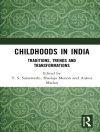Crime and Criminal Behavior delves into such hotly debated topics as age of consent, euthanasia and assisted suicide, gambling, guns, internet pornography, marijuana and other drug laws, religious convictions, and terrorism and extremism. From using a faking I.D. to assaulting one′s domestic partner to driving drunk, a vast array of behaviors fit into the definition of criminal. The authors of these 20 chapters examine the historical contexts of each topic and offer arguments both for and against the ways in which legislators and courts have defined and responded to criminal behaviors, addressing the sometimes complex policy considerations involved. Sensitive subjects such as hate crimes are addressed, as are crimes carried out by large groups or states, including war crime and corporate crime. This volume also considers crimes that are difficult to prosecute, such as Internet crime and intellectual property crime, and crimes about which there is disagreement as to whether the behavior harms society or the individual involved (gun control and euthanasia, for example).
The Series
The five brief, issues-based books in SAGE Reference′s Key Issues in Crime & Punishment Series offer examinations of controversial programs, practices, problems or issues from varied perspectives. Volumes correspond to the five central subfields in the Criminal Justice curriculum: Crime & Criminal Behavior, Policing, The Courts, Corrections, and Juvenile Justice.
Each volume consists of approximately 20 chapters offering succinct pro/con examinations, and Recommended Readings conclude each chapter, highlighting different approaches to or perspectives on the issue at hand. As a set, these volumes provide perfect reference support for students writing position papers in undergraduate courses spanning the Criminal Justice curriculum. Each title is approximately 350 pages in length.
Circa l’autore
William J. Chambliss, professor of sociology at The George Washington University, was a critical sociological theorist whose research has ranged broadly from studies of law creation and the legal system to participant observation studies of juvenile gangs, organized crime, policing, and the impact of social movements on political and economic change. He served as president of the American Society of Criminology and the Society for the Study of Social Problems. He has received numerous awards for his research and teaching, including the prestigious Edwin H. Sutherland Award from the American Society of Criminology, the Lifetime Achievement Award from the American Sociological Association, the Bruce Smith Lifetime Achievement Award from the Academy of Criminal Justice Sciences, the PASS Award from the National Council on Crime and Delinquency, and the Lifetime Achievement Award from the Sociology of Law Section of the American Sociological Association. He has authored and edited over 35 books in sociology, criminology and criminal justice and numerous articles in social science journals.












